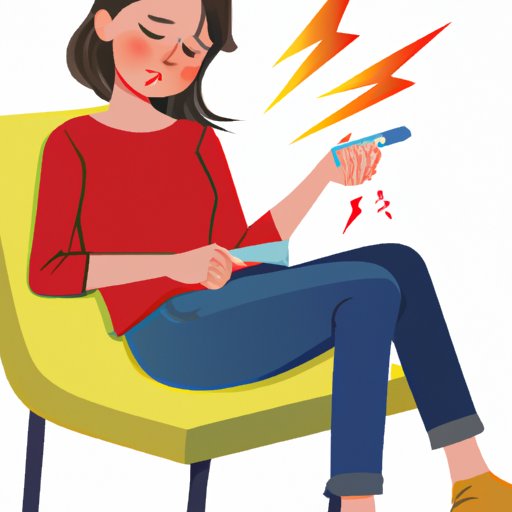
I. Introduction
Menopause is a natural part of a woman’s life cycle. It marks the end of the reproductive years and the beginning of a new chapter in a woman’s life. Understanding the basics of menopause, the symptoms, and how to cope with the changes that come with it can lead to a smoother transition. This article will explore everything you need to know about menopause.
II. Understanding the Basics of Menopause: Age Range, Symptoms, and Causes
Menopause is the end of the menstrual cycle and fertility. It happens when the ovaries stop producing eggs and hormones such as estrogen and progesterone. The age range for menopause is usually between 45 and 55. However, it can occur earlier or later than that depending on genetics, medical history, and lifestyle factors. Common symptoms of menopause include hot flashes, night sweats, vaginal dryness, irritability, and fatigue. Menopause can happen naturally, which is called primary menopause, or it can occur medically by removing both ovaries, which is called surgical menopause.
III. Menopause vs. Perimenopause: What’s the Difference and When to Expect
Perimenopause is the period before menopause where hormone levels start to fluctuate, and women begin to experience symptoms similar to menopause, such as hot flashes, night sweats, and irregular periods. Perimenopause is a natural transition to menopause and can last for a few years or longer. Menopause starts when the menstrual cycle has stopped for 12 months. Some women may experience menopause abruptly and without warning and others may notice a gradual change. The average age of perimenopause is 47.
IV. Redefining Hot Flashes: Experiencing Menopause in Different Ways
Hot flashes are the most common and notable symptom of menopause. They can vary in intensity and frequency. Some women report feeling a mild warmth while others experience a severe heat wave. Other less known symptoms of menopause include headaches, dizziness, urinary incontinence, joint pain, and changes in libido. Menopause can vary significantly from woman to woman, and symptoms may differ in their intensity and duration.
V. Coping with the Emotional and Physical Changes of Menopause
Menopause can bring a range of physical and emotional changes in a woman’s life. Physical changes can include weight gain, fatigue, and sleep disturbances, while emotional changes can include mood swings, depression, and anxiety. Coping mechanism to manage emotional changes includes exercise, mindfulness, and social support. Treatment options to manage physical changes include hormone replacement therapy, over-the-counter medications, and lifestyle changes.
VI. Menopause and Your Health: Common Concerns and Tips for Care
Common health concerns associated with menopause include osteoporosis, cardiovascular disease, and breast cancer. Tips to maintain your health during menopause include exercise, eating a healthy diet, and reducing stress. It’s important to have regular medical check-ups during menopause, including mammograms and bone density tests, as some complications are easier to manage when detected early.
VII. Lifestyle Changes to Manage Menopause: Exercise, Nutrition, and More
Exercise is one of the best ways to manage symptoms of menopause, such as hot flashes, insomnia, and mood swings. Walking, yoga, and strength training are recommended. Eating a well-balanced diet that includes plenty of fruits, vegetables, and whole grains can also help maintain good health. Other lifestyle changes that can help manage menopause symptoms include getting plenty of sleep, reducing stress, and avoiding smoking and alcohol.
VIII. Conclusion
In conclusion, menopause is a natural transition for every woman. Understanding the basics, symptoms, and coping strategies can help make the transition smoother. If you are experiencing symptoms of menopause, seek medical advice to get a better understanding of your situation. Remember, menopause is a new chapter in your life that should be embraced with open arms and a positive attitude.




